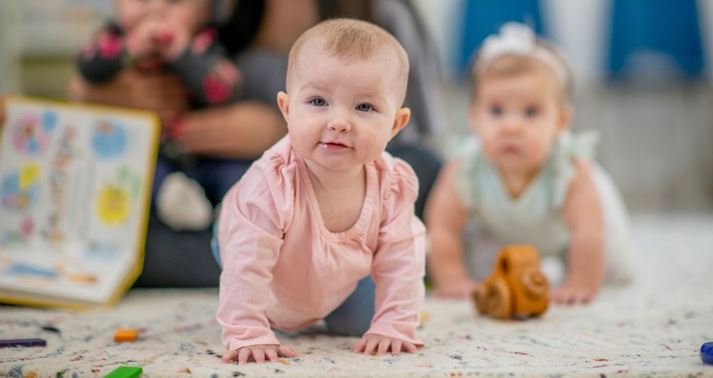NQF Child Safety Compliance Changes 2025: Essential Guide for Early Learning Services
25 August, 2025

From September 2025, significant changes to the National Quality Framework (NQF) will reshape compliance and child safety expectations in early childhood education and care (ECEC). For centre directors, educators, and families, these reforms set a higher benchmark for protecting children.
At McArthur, child safety and compliance are more than obligations, they are values embedded into every part of our work. With over 35 years in Early Childhood Education and Care sector in Australia, we have consistently led with policies, training and screening processes that set the standard across the industry. Many of the measures now becoming mandatory through the NQF are practices McArthur has implemented for many years, ensuring services that partner with us are always ahead of regulatory change.
Why the 2025 NQF Child Safety Reforms Matter for Early Learning
The NQF review identified areas where protections could be strengthened. Education Ministers have now agreed on reforms that improve accountability and reinforce safe, high-quality care.
The new child safety compliance requirements will strengthen governance across all services, set stricter reporting timeframes for serious incidents, and reduce health and safety risks for children. McArthur has been guiding services in these areas for many years through rigorous recruitment checks, clear child safe policies, and mandatory educator training. Our role is to ensure that as the sector adapts, our partners do so with confidence and the reassurance of proven systems already in place.
September 2025 NQF Regulation Updates for Early Childhood Services
Digital Technology and Online Safety in Early Learning
New Requirement: From September 2025, all services must implement policies for the safe use of digital technologies and online environments, including images, videos, CCTV, and device usage.
How McArthur Protects Children Online: McArthur has long recognised the risks of technology misuse in early learning. That’s why our Mobile Device Policy requires educators to securely store personal devices and prohibits the use of phones or cameras to capture images of children. These expectations are reinforced during induction training, where educators are taught to uphold privacy, confidentiality and safe digital practices. For services, this means that educators placed by McArthur arrive prepared to respect digital safety protocols and minimise risks in online or technology-related environments.
Mandatory Reporting Timeframes for Child Abuse Under the NQF
New Requirement: Services must notify regulatory authorities of any allegations or incidents of physical or sexual abuse within 24 hours, a significant reduction from the previous seven-day window.
How McArthur Responds to Child Safety Concerns: For McArthur, swift action on child protection has always been non-negotiable. Our Child Safe Policy directs educators to report concerns immediately to supervisors, McArthur consultants, and, where required, the relevant authority. This expectation is supported by mandatory child protection training, built into our induction, so every educator understands their legal obligations and how to respond in practice. By embedding these standards early, McArthur ensures educators we place into services are ready to meet the pace of the new NQF requirement, giving centres confidence in rapid, consistent responses.
Banning Vaping in Early Childhood Education Services
New Requirement: From September 2025, services must be completely free from vaping devices and substances, extending existing bans on tobacco, drugs, and alcohol.
McArthur’s Standards for Safe Learning Environments: Creating a safe and healthy environment for children extends to removing harmful substances. McArthur prepares educators during induction by reinforcing that smoking, vaping and similar behaviours are not permitted in or around services. Consultants consistently remind educators of these expectations during placement briefings, ensuring alignment with health and safety policies at every centre. This preventative approach means that when McArthur places educators in services, they are already prepared to contribute to vape-free, child-focused environments.
January 2026 NQS Refinements: Child Safety in Quality Area 2 and 7
Upcoming Changes: From January 2026, Quality Area 2 (Children’s Health and Safety) and Quality Area 7 (Governance and Leadership) will explicitly reference child safety, embedding it in daily practice and service leadership.
McArthur’s Commitment to NQS Governance and Leadership: McArthur’s leadership in compliance means we are well positioned to support services through these refinements. Our Child Safe Policy is reviewed annually to remain current with national standards and legislative changes. Recruitment processes include verbal reference checks that verify the referees provided and directly assess an applicant’s knowledge of the NQS, including supervision ratios and child protection responsibilities. Induction programs then build on this by training educators in safe supervision, children’s rights, and centre governance practices. By taking this proactive approach, McArthur ensures the educators we connect with services not only meet the new NQS refinements but also strengthen centres’ compliance and quality outcomes during assessments and reviews.
Resources and Support for Preparing Your Service
As services prepare for the 2025–26 NQF reforms, there are trusted resources to guide policy updates, staff training and compliance:
- ACECQA NQF Child Safe Culture Guide – Practical advice for building and embedding a child safe culture across your service, aligned with the National Principles for Child Safe Organisations. It outlines strategies for leadership, staff capability, family engagement and governance.
- ACECQA Information Sheet – NQF Child Safety Changes 2025–26 – Clear overview of what’s changing, when, and how to respond.
- National Model Code – Taking images in early childhood education and care – Best practice policies on safe use of digital devices and images in ECEC, supporting services to meet digital safety obligations.
For further information, visit ACECQA’s NQF Child Safety page.
For centres and services looking to strengthen child safety practices ahead of the NQF changes, McArthur’s Early Childhood Education consultants are here to help. Partner with us to ensure your service is ready, confident and child safe as the 2025 and 2026 reforms come into effect.
FAQs on NQF Child Safety Compliance Changes 2025–2026
What are the key NQF child safety compliance changes in 2025?
Services must implement digital safety policies, notify authorities within 24 hours of abuse allegations, and ensure environments are vape-free.
How will these changes affect early childhood educators?
Educators must follow stricter digital safety rules, complete mandatory reporting within 24 hours, and comply with updated health and safety practices.
What are the January 2026 NQS refinements?
Quality Area 2 and Quality Area 7 will explicitly reference child safety, embedding it in service leadership, governance, and everyday practice.
How is McArthur preparing centres for compliance?
Through comprehensive screening, mandatory training, robust child safe policies, and 24/7 consultant support, McArthur ensures educators placed in services meet all compliance requirements.
Why should centres partner with McArthur for workforce compliance?
McArthur not only connects services with qualified educators but also provides compliance assurance, making child safety a shared priority with every placement.
Share this Article
Related Articles
McArthur’s Commitment to Child Safety, Workforce Compliance and NQF Excellence
For over 35 years, McArthur has partnered with early learning services across Australia to deliver workforce solutions that strengthen child safety, NQF compliance and staffing quality. Discover how we continue to support centres in meeting the 2025 and 2026 reforms with confidence.
Learn MoreHow Early Learning Services Can Prepare for the 2026 NQS Child Safety Standards
The NQS will be refined in 2026 to place stronger emphasis on child safety in early learning. Learn what’s changing in Quality Areas 2 and 7, how services can prepare, and how McArthur partners with centres to build a confident, compliant child safe culture.
Learn MoreNQF Vaping Ban 2025: How Early Learning Services Can Build Smoke-Free Environments
The NQF vaping ban takes effect in September 2025, requiring early learning services to be smoke-free and vape-free. Learn what this means for leaders, how to build a positive workplace culture, and how McArthur supports centres with workforce and compliance solutions.
Learn MoreChild Safety and NQF Mandatory Reporting 2025: Understanding the 24-Hour Reporting Rule
The NQF is introducing a stricter 24-hour mandatory reporting rule for early learning services from September 2025. Understand what this change means, why it matters for child safety, and how McArthur supports centres to meet compliance with confidence.
Learn More



